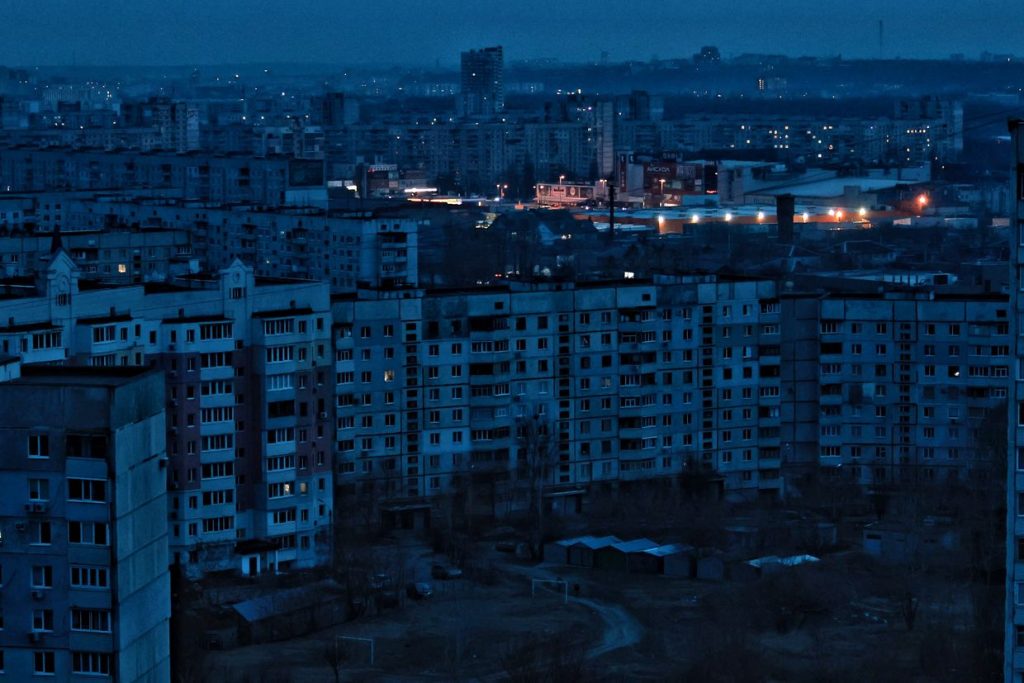The Institute for the Study of War (ISW) reported on April 10 that Ukraine’s air defense systems are being redistributed to protect heavily targeted cities like Kharkiv, leading to potential routine Russian attacks on rear logistics and cities. President Zelensky discussed reorganizing the use of air defense with Air Force Commander Mykola Oleshchuk to provide added protection to Kharkiv, which was recently attacked with Russian aerial glide bombs. The scarcity of munitions has forced Ukraine to make difficult choices, stretching its limited air defense capabilities. Efforts are being made to secure Western air defense systems, such as U.S.-made Patriots, to mitigate the shortage, with the U.S. State Department announcing a military sales package worth $138 million to assist in essential repairs and procurement of spare parts for Hawk missile systems. Despite these emergency efforts, ISW analysts warn that Ukraine’s air defense capabilities remain insufficient to defend against Russian strikes.
The ISW cautioned that with Ukraine’s degraded and thin air defense systems, Moscow may conduct regular strikes not only against front-line targets but also logistics and cities in Ukraine’s rear areas. This could result in devastating glide bomb strikes at scale and possibly even allow for routine large-scale Russian aviation operations against near-rear Ukrainian logistics and cities. The ongoing attacks in cities like Kharkiv and Odesa oblasts have resulted in casualties, including fatalities and injuries. The situation remains dire as Ukraine faces challenges in adequately defending its airspace amid the Russian onslaught. The fear of further attacks and the need to protect civilians and vital infrastructure highlight the urgency of enhancing air defense capabilities.
In response to the escalating conflict, Ukraine’s Parliament began considering an updated mobilization bill in the second reading. Germany has delivered artillery shells, drones, and armored vehicles to Ukraine to support its defense efforts. These developments underscore the international community’s support for Ukraine in its struggle against Russian aggression. The assistance provided by countries like Germany and the U.S. is crucial in strengthening Ukraine’s ability to defend itself and protect its territorial integrity. However, the continuation of Russian attacks and the strained air defense capabilities of Ukraine emphasize the need for sustained assistance and cooperation from allies to counter the ongoing threat.
The ISW’s analysis points to the challenges faced by Ukraine in defending against Russian aggression, particularly with limited air defense capabilities. The intensification of attacks on cities like Kharkiv underscores the urgency of bolstering Ukraine’s defenses to protect civilians and vital infrastructure. The reorganization of air defense systems and efforts to secure Western air defense systems are steps in the right direction, but more support is needed to effectively defend against Russian strikes. The international community must continue to stand with Ukraine in its fight for sovereignty and territorial integrity, providing the necessary assistance to counter the threat posed by Russian military aggression.
The situation in Ukraine remains fluid and volatile, with ongoing attacks causing casualties and destruction. The need to prioritize the protection of civilians and critical infrastructure is paramount as the conflict continues to escalate. The international community plays a crucial role in supporting Ukraine’s defense efforts and ensuring that it has the necessary resources to counter Russian aggression. By standing together and supporting independent journalism and the dissemination of accurate information, we can help shed light on the realities of the conflict and work towards a peaceful resolution. Joining the fight to support independent journalism in Ukraine is a vital step in advocating for truth, transparency, and accountability in the midst of the ongoing crisis.


